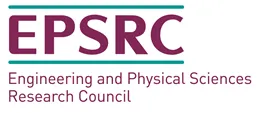CONSULT
While the new generation of wellness sensors are able to collect an increasing array of clinically useful data, such data is currently disconnected both from the patient context, provided by the Electronic Health Record (EHR), and from the treatment plan, based on current best-evidence guidelines and customised by the patient’s GP.
In cases of multi-morbidities, there is no clear strategy for combining multiple guidelines into a coherent whole. Furthermore, personalised treatment plans are rigid and do not adapt dynamically to changes in a patient’s circumstances. Finally, the record of patient condition and decisions made is not routinely captured in a standardised way, preventing effective learning about the treatment effectiveness.

To address these problems, this new CONSULT project will combine wellness sensors with intelligent software running on mobile devices, to support patient decision making, and thus actively engage patients in managing their healthcare. Our system will use computational argumentation to help patients follow treatment guidelines and will learn details specific to individuals, personalising treatment advice within medically sound limits. Critically, the software will be able to detect conflicts in treatment guidelines that frequently arise in the management of multiple morbidities. The software will be able to provide advice regarding which treatment options to follow, when the conflicts can be resolved by the patient and when a resolution will require an intervention from a clinician. The software will thus help patients handle routine maintenance of their conditions, while ensuring that medical professionals are consulted when appropriate. This will enable patients to take charge of their own conditions, while being fully supported in both traditional and new, innovative ways. By routinely capturing the data provenance of the recommendations made, actions taken, and the resulting patient progress, the software will provide valuable insight into the effectiveness of treatments and underlying guidelines in multi-morbidity scenarios.
Helping patients to manage their own care will reduce the demands made on medical professionals, while reaping the health benefits of self-management. Integrating real-time information from monitoring devices will make it possible to distinguish between situations that need attention from medical professionals, and those that do not, reducing the number of extra appointments that patients and doctors need to schedule. Using real-time information will also make it possible to detect changes in the course of a disease, allowing pre-emptive actions to be taken, and thus reducing the amount of time that someone suffering from a long-term condition may have to spend in hospital. Overall, our approach will not only provide more efficient care, but also allow care to be better tailored to the needs of each individual.
The technology will be evaluated across multiple dimensions in a proof-of-concept study, engaging stroke patients, their carers and medical professionals, while capitalising on KCL’s world-leading position in stroke research and its established patient groups, particularly those connected to the South London Stroke Register programme.
Aims
The proof-of-concept aims to:
- Integrate data from wellness sensors with a patient’s electronic health record to create a personalised, live picture of the patient’s condition that can be combined in situ with treatment guidelines to produce a dynamic care plan according to the patient’s current circumstances
- Develop methods for data-backed decision making that can help patients make well-informed choices about actions to take in self-managing their conditions on a daily basis, adapting their long-term care plans and involving medical professionals as necessary
- Implement these methods in a decision-support system, deployed in mobile and browser formats, which is customised not only to the care of a particular patient, but also offers different views depending on whether the user is the patient, a carer or clinician.
The prototype system will target stroke patients, aiming to prevent secondary stroke.
Publications
2020
- An argumentation-based approach for generating domain-specific explanations, Nadin Kökciyan, Simon Parsons, Isabel Sassoon, Elizabeth Sklar, Sanjay Modgil. (Accepted) 17th European Conference on Multi-Agent Systems (EUMAS) 2020
- Implementing argument and explanation schemes in dialogue, Isabel Sassoon, Nadin Kökciyan, Martin Chapman, Elizabeth Sklar, Vasa Curcin, Sanjay Modgil and Simon Parsons. (Accepted) 8th International Conference on Computational Models of Argument (COMMA) 2020.
- In the wild usability assessment of a connected health system for stroke self management: a pilot. Panagiotis Balatsoukas, Isabel Sassoon, Martin Chapman, Nadin Kökciyan, Archie Drake, Sanjay Modgil, Mark Ashworth, Vasa Curcin, Elizabeth Sklar and Simon Parsons. (Accepted) 8th IEEE International Conference on Healthcare Informatics ICHI 2020
2019
- Computational Argumentation-based Clinical Decision Support Martin Chapman, Nadin Kökciyan, Kai Essers, Isabel Sassoon, Panagiotis Balatsoukas, Mark Ashworth, Vasa Curcin, Simon Parsons, Sanjay Modgil, and Elizabeth I Sklar. (Accepted/In press) Proceedings of the 18th International Conference on Autonomous Agents and Multi-agent Systems AAMAS 2019
- Explainable Argumentation for Wellness Consultation Isabel Sassoon, Elizabeth Sklar, Nadin Kökciyan and Simon Parsons. (Accepted/In press) International Workshop on Explainable Transparent Autonomous Agent and Multi-Agent Systems (EXTRAAMAS), 2019
- User involvement in the design of a data-driven self-management decision support tool for stroke survivors Panagiotis Balatsoukas, Talya Porat, Isabel Sassoon, Kai Essers, Nadin Kökciyan, Martin Chapman, Archie Drake, Sanjay Modgil, Mark Ashworth, Elizabeth Sklar, Simon Parsons and Vasa Curcin. (Accepted/In press) 18th IEEE International Conference on Smart Technologies.IEEE Computer Society Press 2019
- A Collaborative Decision Support Tool for Managing Chronic Conditions Nadin Kökciyan, Martin Chapman, Panagiotis Balatsoukas, Isabel Sassoon, Kai Essers, Mark Ashworth, Vasa Curcin, Sanjay Modgil, Simon Parsons and Elizabeth Sklar Mar 2019, (Accepted/In press) The 17th World Congress of Medical and Health Informatics.
2018
- Towards an Argumentation System for Supporting Patients in Self-Managing Their Chronic Conditions. Nadin Kökciyan and Isabel Sassoon and Anthony P. Young and Martin Chapman and Talya Porat and Mark Ashworth and Vasa Curcin and Sanjay Modgil and Simon Parsons and Elizabeth Sklar. Health Intelligence AAAI Workshop 2018
- Instantiating Metalevel Argumentation Frameworks. Anthony P. Young, Nadin Kökciyan, Isabel Sassoon, Sanjay Modgil and Simon Parsons. Proceedings of the 7th International Conference on Computational Models of Argument (COMMA 2018). IOS Press, 2018
- Reasoning with Metalevel Argumentation Frameworks in Aspartix. Nadin Kökciyan, Isabel Sassoon, Anthony P. Young, Sanjay Modgil and Simon Parsons. Proceedings of the 7th International Conference on Computational Models of Argument (COMMA 2018). IOS Press, 2018.
- Stakeholders’ views on a collaborative decision support system to promote multimorbidity self-management: barriers, facilitators and design implications. Talya Porat, Nadin Kökciyan, Isabel Sassoon, Anthony P. Young, Martin Chapman, Mark Ashworth, Sanjay Modgil, Simon Parsons, Elizabeth Sklar, Vasa Curcin. American Medical Informatics Association (AMIA) 2018 Annual Symposium. 2018. link to publication
- The CONSULT System: Demonstration. Kai Essers, Martin Chapman, Nadin Kökciyan, Isabel Sassoon, Talya Porat, Panos Balatsoukas, Anthony P Young, Mark Ashworth, Vasa Curcin, Sanjay Modgil, Simon Parsons, Elizabeth Sklar. 2018. The CONSULT System. Proceedings of the 6th International Conference on Human-Agent Interaction – HAI ’18 (2018).
The publication feed is not currently available.
Conferences
January 2020: CONSULT Clinical Advisory Board meeting
The latest meeting of the project’s Clinical Advisory Board took place on the morning of 14 January 2020 in Addison House (Guy’s Campus), with Prof. Tony Rudd in the Chair. The team updated the Board on progress towards user studies and gave a demo of the working system. The Board encouraged the team to proceed with intended next steps, with guidance on specific points including continued strong engagement with user groups and moves to include various organisations with potential interests in system deployment.
December 2018: CONSULT Demo wins best Demo award at HAI 2018.
The Demo paper “The CONSULT System: Demonstration” was awarded Best Demo at the 6th International Conference on Human Agent Interaction. The conference was held at Southampton University in December 2018. You can read more about the conference.
December 2018: Argumentation Tutorial at HAI2018
Nadin Kokciyan, Isabel Sassoon, Elizabeth Sklar and Simon Parsons together with colleagues Josh Murphy from KCL and Nir Oren from Aberdeen University organised and presented a tutorial on Argumentation for Human Agent Interaction. This was held as part of the 6th International Conference on Human Agent Interaction.
See the tutorial website for more details.
December 2018: DEXAHAI Workshop
Isabel Sassoon, Nadin Kokciyan and Simon Parsons alongside Timothy Norman from Southampton University organised the first International Conference on Dialogue, Explanation and Argumentation DEXAHAI at the 6th International Conference on Human Agent Interaction.
The papers accepted and presented at this workshop are available on the workshop website.
November 2018: Second CONSULT Focus Group
At the end of November the CONSULT team held a patient focus group to get feedback on our ideas so far. The outcomes of the first Focus Group from 2017 were published at the AIMA symposium. The paper is avalable online.
October 2018: CONSULT invited paper was presented at the MedRACER Workshop in Arizona, USA.
Martin Chapman presented the paper titled “Towards an Argumentation System for supporting patients in Self-Managing their Chronic Conditions” at the MedRacer workshop. This paper was originally presented at the AAAI Joint workshop on Health Intelligence (W3PHIAI 2018) in February 2018.
The paper is available online.
Publications
2020
- An argumentation-based approach for generating domain-specific explanations, Nadin Kökciyan, Simon Parsons, Isabel Sassoon, Elizabeth Sklar, Sanjay Modgil. (Accepted) 17th European Conference on Multi-Agent Systems (EUMAS) 2020
- Implementing argument and explanation schemes in dialogue, Isabel Sassoon, Nadin Kökciyan, Martin Chapman, Elizabeth Sklar, Vasa Curcin, Sanjay Modgil and Simon Parsons. (Accepted) 8th International Conference on Computational Models of Argument (COMMA) 2020.
- In the wild usability assessment of a connected health system for stroke self management: a pilot. Panagiotis Balatsoukas, Isabel Sassoon, Martin Chapman, Nadin Kökciyan, Archie Drake, Sanjay Modgil, Mark Ashworth, Vasa Curcin, Elizabeth Sklar and Simon Parsons. (Accepted) 8th IEEE International Conference on Healthcare Informatics ICHI 2020
2019
- Computational Argumentation-based Clinical Decision Support Martin Chapman, Nadin Kökciyan, Kai Essers, Isabel Sassoon, Panagiotis Balatsoukas, Mark Ashworth, Vasa Curcin, Simon Parsons, Sanjay Modgil, and Elizabeth I Sklar. (Accepted/In press) Proceedings of the 18th International Conference on Autonomous Agents and Multi-agent Systems AAMAS 2019
- Explainable Argumentation for Wellness Consultation Isabel Sassoon, Elizabeth Sklar, Nadin Kökciyan and Simon Parsons. (Accepted/In press) International Workshop on Explainable Transparent Autonomous Agent and Multi-Agent Systems (EXTRAAMAS), 2019
- User involvement in the design of a data-driven self-management decision support tool for stroke survivors Panagiotis Balatsoukas, Talya Porat, Isabel Sassoon, Kai Essers, Nadin Kökciyan, Martin Chapman, Archie Drake, Sanjay Modgil, Mark Ashworth, Elizabeth Sklar, Simon Parsons and Vasa Curcin. (Accepted/In press) 18th IEEE International Conference on Smart Technologies.IEEE Computer Society Press 2019
- A Collaborative Decision Support Tool for Managing Chronic Conditions Nadin Kökciyan, Martin Chapman, Panagiotis Balatsoukas, Isabel Sassoon, Kai Essers, Mark Ashworth, Vasa Curcin, Sanjay Modgil, Simon Parsons and Elizabeth Sklar Mar 2019, (Accepted/In press) The 17th World Congress of Medical and Health Informatics.
2018
- Towards an Argumentation System for Supporting Patients in Self-Managing Their Chronic Conditions. Nadin Kökciyan and Isabel Sassoon and Anthony P. Young and Martin Chapman and Talya Porat and Mark Ashworth and Vasa Curcin and Sanjay Modgil and Simon Parsons and Elizabeth Sklar. Health Intelligence AAAI Workshop 2018
- Instantiating Metalevel Argumentation Frameworks. Anthony P. Young, Nadin Kökciyan, Isabel Sassoon, Sanjay Modgil and Simon Parsons. Proceedings of the 7th International Conference on Computational Models of Argument (COMMA 2018). IOS Press, 2018
- Reasoning with Metalevel Argumentation Frameworks in Aspartix. Nadin Kökciyan, Isabel Sassoon, Anthony P. Young, Sanjay Modgil and Simon Parsons. Proceedings of the 7th International Conference on Computational Models of Argument (COMMA 2018). IOS Press, 2018.
- Stakeholders’ views on a collaborative decision support system to promote multimorbidity self-management: barriers, facilitators and design implications. Talya Porat, Nadin Kökciyan, Isabel Sassoon, Anthony P. Young, Martin Chapman, Mark Ashworth, Sanjay Modgil, Simon Parsons, Elizabeth Sklar, Vasa Curcin. American Medical Informatics Association (AMIA) 2018 Annual Symposium. 2018. link to publication
- The CONSULT System: Demonstration. Kai Essers, Martin Chapman, Nadin Kökciyan, Isabel Sassoon, Talya Porat, Panos Balatsoukas, Anthony P Young, Mark Ashworth, Vasa Curcin, Sanjay Modgil, Simon Parsons, Elizabeth Sklar. 2018. The CONSULT System. Proceedings of the 6th International Conference on Human-Agent Interaction – HAI ’18 (2018).
The publication feed is not currently available.
Conferences
January 2020: CONSULT Clinical Advisory Board meeting
The latest meeting of the project’s Clinical Advisory Board took place on the morning of 14 January 2020 in Addison House (Guy’s Campus), with Prof. Tony Rudd in the Chair. The team updated the Board on progress towards user studies and gave a demo of the working system. The Board encouraged the team to proceed with intended next steps, with guidance on specific points including continued strong engagement with user groups and moves to include various organisations with potential interests in system deployment.
December 2018: CONSULT Demo wins best Demo award at HAI 2018.
The Demo paper “The CONSULT System: Demonstration” was awarded Best Demo at the 6th International Conference on Human Agent Interaction. The conference was held at Southampton University in December 2018. You can read more about the conference.
December 2018: Argumentation Tutorial at HAI2018
Nadin Kokciyan, Isabel Sassoon, Elizabeth Sklar and Simon Parsons together with colleagues Josh Murphy from KCL and Nir Oren from Aberdeen University organised and presented a tutorial on Argumentation for Human Agent Interaction. This was held as part of the 6th International Conference on Human Agent Interaction.
See the tutorial website for more details.
December 2018: DEXAHAI Workshop
Isabel Sassoon, Nadin Kokciyan and Simon Parsons alongside Timothy Norman from Southampton University organised the first International Conference on Dialogue, Explanation and Argumentation DEXAHAI at the 6th International Conference on Human Agent Interaction.
The papers accepted and presented at this workshop are available on the workshop website.
November 2018: Second CONSULT Focus Group
At the end of November the CONSULT team held a patient focus group to get feedback on our ideas so far. The outcomes of the first Focus Group from 2017 were published at the AIMA symposium. The paper is avalable online.
October 2018: CONSULT invited paper was presented at the MedRACER Workshop in Arizona, USA.
Martin Chapman presented the paper titled “Towards an Argumentation System for supporting patients in Self-Managing their Chronic Conditions” at the MedRacer workshop. This paper was originally presented at the AAAI Joint workshop on Health Intelligence (W3PHIAI 2018) in February 2018.
The paper is available online.
Our Partners

The Engineering and Physical Sciences Research Council (EPSRC)





